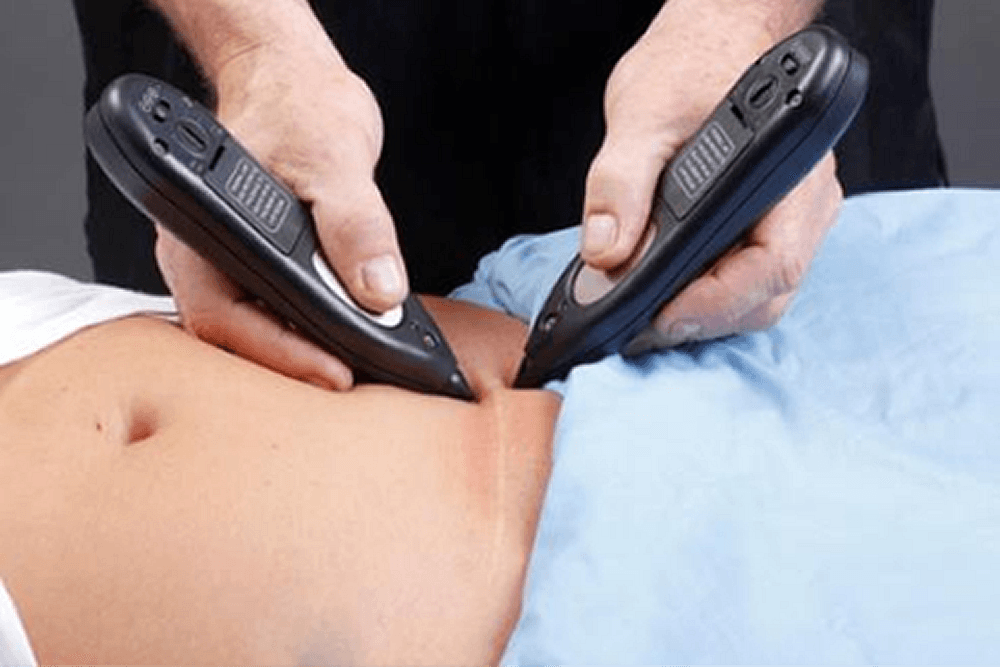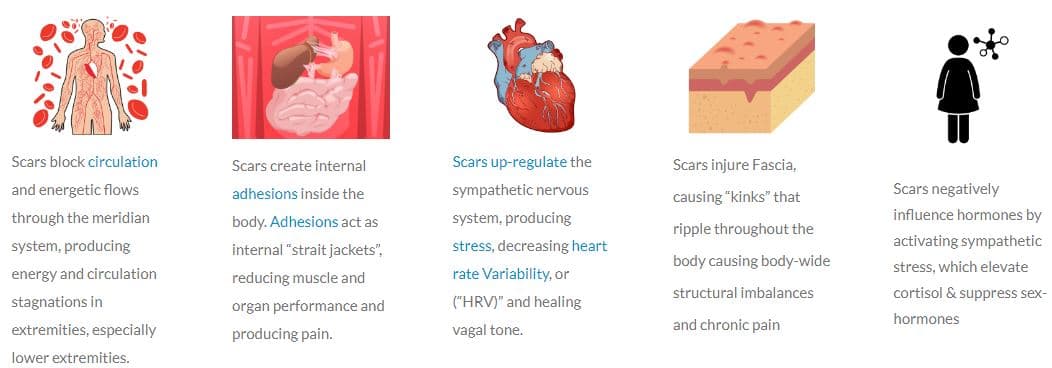MPS Scar Release Therapy
Scars are universal - we all have them
Scars are universal; we ALL have them. They even accumulate as we age and walk through life, and can be the culprit to many pain syndromes and diseases. Scars can also occur as a result of broken bones, sprained joints, torn muscles, inflammation, or any areas of the body (and as a result, the mind) that has been injured through trauma; both physical and emotional. Scars - especially abdominal surgical scars - have a significantly negative influence on the body. Among other things, they restrict metabolism, pull on fascia, the skeletal system and internal organs, and otherwise negatively influence the body in many ways. Scars are now recognized as a key source of physical stress.

MPS Scar Release Therapy
50 Minutes - $135
Scars directly connect to the skin through the peripheral and central nervous systems, so any injury to the skin or underlying fascia will cause a prolonged sympathetic response. It is theorized that each surgery or injury compounds this stress aggravation until the sympathetic nervous system goes into hyper load, resulting in disease or prolonged chronic post-surgical pain. It is reported that up to one third of patients undergoing common surgical procedures report persistent or intermittent pain, called chronic post-surgical pain (CPSP), of varying severity at one year postoperatively.
Scars directly connect to the skin through the peripheral and central nervous systems, so any injury to the skin or underlying fascia will cause a prolonged sympathetic response. It is theorized that each surgery or injury compounds this stress aggravation until the sympathetic nervous system goes into hyper load, resulting in disease or prolonged chronic post-surgical pain. It is reported up to one third of patients undergoing common surgical procedures report persistent or intermittent pain, called chronic post surgical pain (CPSP), of varying severity at one year postoperatively.

(Lancet 2006). Called the "fascia-stress" theory of pain, this theory suggests scars injure fascia causing restrictions which activate sympathetic stress.
"With millions of physical scars surgically produced annually the "Fascia-Stress" Theory of pain may help to explain the causation of suffering for so many hard-to-treat (intractable) chronic pain sufferers."
